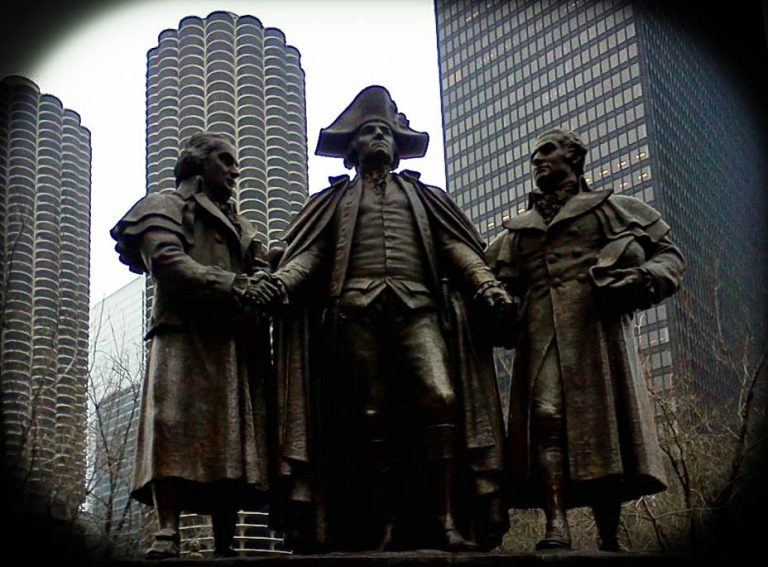Chambers’ Enduring WITNESS
This post contains affiliate links. For more information, click here.
Communist-turned-Christian Whittaker Chambers’ magisterial best-seller Witness was the most important book of the 20th century.
Part autobiography, part jeremiad, part spy thriller, Witness is a classic in the truest sense of the word; it is a work whose importance transcends the passage of time.
Chambers first came to international attention in August 1948, when he testified before the House Un-American Activities Committee that Alger Hiss, golden boy of the liberal establishment, had been a fellow member of Chambers’ underground communist cell in the United States during the 1930s. Chambers had joined the Communist Party in 1925; he wrote for its propaganda organs and worked for the military intelligence section of the Red Army, though at the time he did not know precisely which part of the underground apparatus he served, “and, as a disciplined Communist, I never asked”. In time, he grew disturbed by what he saw happening in communism – the purges, the disappearances of comrades, the Stalin-Hitler Pact. In 1937, Chambers began his break with communism; in 1938, he left the party.
Hiss was a former assistant to the Secretary of State who served as an adviser to Franklin Delano Roosevelt during the Yalta Conference and claimed to have participated in drafting the agreement it yielded. After two wearying trials, Hiss was eventually convicted of perjury for denying his espionage activities against the United States and was sentenced to five years imprisonment. Following his release in 1954, Hiss spent more than 40 years trying to vindicate himself. In March 1996, transcriptions from the VENONA Project, a U.S. effort to decrypt Soviet KGB and military intelligence messages from the 1940s, established that Hiss had likely been a Soviet spy at least until 1945. He died in November of that year, still protesting his innocence.
Despite its stranger-than-fiction political intrigue, complete with murders, spy games, clandestine meetings, and broken relationships, Witness at its deepest level is not about politics. Witness is about God and the human need for God, which communism rejects.
“The Communist vision is the vision of Man without God,” Chambers writes. “It is the vision of man’s mind displacing God as the creative intelligence of the world. It is the vision of man’s liberated mind, by the sole force of its rational intelligence, redirecting man’s destiny and reorganizing man’s life and the world. It is the vision of man, once more the central figure of the Creation, not because God made man in His image, but because man’s mind makes him the most intelligent of the animals.”
Communism was merely the 20th century’s manifestation of the eternal phenomenon, “[T]hey became futile in their speculations, and their foolish heart was darkened. Professing to be wise, they became fools, and exchanged the glory of the incorruptible God for an image in the form of corruptible man …” (Romans 1:21b-23a, NASB).
The depravity of communism helped show Chambers the need for God. If God is real, if there is an eternal Creator who designed the world, then He necessarily did so for a purpose and according to a plan. To deny this is to reject that which gives humanity its significance. When people reject eternal purpose, they become focused on the immediate and lose the perspective of time. When they reject spiritual significance, they become materialistic. Their plans and efforts reflect these influences, yet ultimately are doomed to failure, for “many are the plans in a man’s heart, but the counsel of the Lord … will stand” (Proverbs 19:21, NASB).
This is why communism was destined to fail from its beginning. The great ironic tragedy of the 20th century is that an ideology that exalted man over God not only failed to contribute any worthwhile cultural idea or achievement but also that it committed unimaginable assaults on life, human dignity, and the freedom of the mind.
Chambers grasped this irony as it unfolded:
[O]ver the years the unwanted thought sometimes crossed my mind: What is lacking in Communism? What is it that keeps the human level of Communism so low, that makes the party a rat’s nest of intrigue and faction? What is the source of its corroding cynicism, that makes the workers, in contrast to the Communists, seem like heroes of simply honesty, that makes us waste human life and effort without scruple and turns our greatest victories into sordid waste? Why is it that thirty years after the greatest revolution in history, the Communists have not produced one single inspired work of the mind? What is our lack?
Now in my despair, I asked at last: can it be God?
Realizing that it was changed Chambers’ worldview and his life:
What I had been fell from me like dirty rags. The rags that fell from me were not only Communism. What fell was the whole web of the materialist modern mind—the luminous shroud which it has spun about the spirit of man, paralyzing in the name of rationalism the instinct of his soul for God, denying in the name of knowledge the reality of the soul and its birthright in that mystery on which mere knowledge falters and shatters at every step. If I had rejected only Communism, I would have rejected only one political expression of the modern mind… I should have remained within that modern intellectual mood which gives birth to Communism, and denies the soul in the name of the mind, and the soul’s salvation in suffering in the name of man’s salvation here and now. What I sensed without being able to phrase it was what has since been phrased with the simplicity of an axiom: ‘Man cannot organize the world for himself without God; without God man can only organize the world against man.’ The gas ovens of Buchenwald and the communist execution cellars exist first within our minds.
Witness was written, and its author dead, long before communism fell, but, since Chambers viewed communism as only the “most conspicuously menacing form” of the rejection of God, its fall does not relieve the true crisis. “The crisis of the Western world exists to the degree in which it is indifferent to God,” Chambers wrote. “It exists to the degree in which the Western world actually shares Communism’s materialist vision, is … dazzled by the logic of the materialist interpretation of history, politics and economics .…” As long as the Western world rejects God, it grows increasingly dominated by the immediate and the material and can only perpetuate communism’s lies and its failures. This is why Chambers’ message is still important today. The most menacing manifestation of the rejection of God may be quarantined to China, Cuba, and Cambridge, but its vision continues to infect the culture at large. It reveals itself in abortion-on-demand, which undermines the regard for human life, in “no-fault” divorce, which sanctions the quick and easy way out, and in progressive taxation, first conceived by Karl Marx, which stigmatizes prosperity and the freedom that fosters it.
Chambers’ gift for recognizing the communist lie as it pervaded Western culture was also his curse, as it contributed to his despair, which, sadly, faith in God did not alleviate. The weakness in Witness is its pessimism, which pervades the narrative from its first page: “I wanted my wife to realize clearly one long-term penalty, for herself and for the children, of the step I was taking. I said: ‘You know, we are leaving the winning world for the losing world.’” Chambers left communism believing that it would win in the end. He was wrong. Twenty years ago this month, Ronald Reagan, a man as optimistic as Chambers was pessimistic, demanded before Berlin’s Brandenburg Gate: “Mr. Gorbachev, tear down this wall!” Two years later, the wall came tumbling down.
Chambers’ life would have been made lighter if he had shared Reagan’s optimism, but if he is rightly criticized for his pessimism, Chambers must also be praised for his courage. Anybody can leave the losing side for the winning side. It takes profound moral fortitude to do what one believes to be the opposite.
It is this moral courage that most gives Chambers’ Witness the power to inspire generation after generation and that makes the message of God’s greatness the testimony not only of his book but also of his life. As he put it:
I do not know any way to explain why God’s grace touches a man who seems unworthy of it. But neither do I know any other way to explain how a man like myself—tarnished by life, unprepossessing, not brave—could prevail so far against the powers of the world arrayed almost solidly against him, to destroy him and defeat his truth. In this sense, I am an involuntary witness to God’s grace and to the fortifying power of faith.

After my misspent youth as a wage worker, I’m having so much more fun as a blogger, helping other discerning travellers plan fun and fascinating journeys. Read more …






A good source for information about him is WhittakerChambers.org